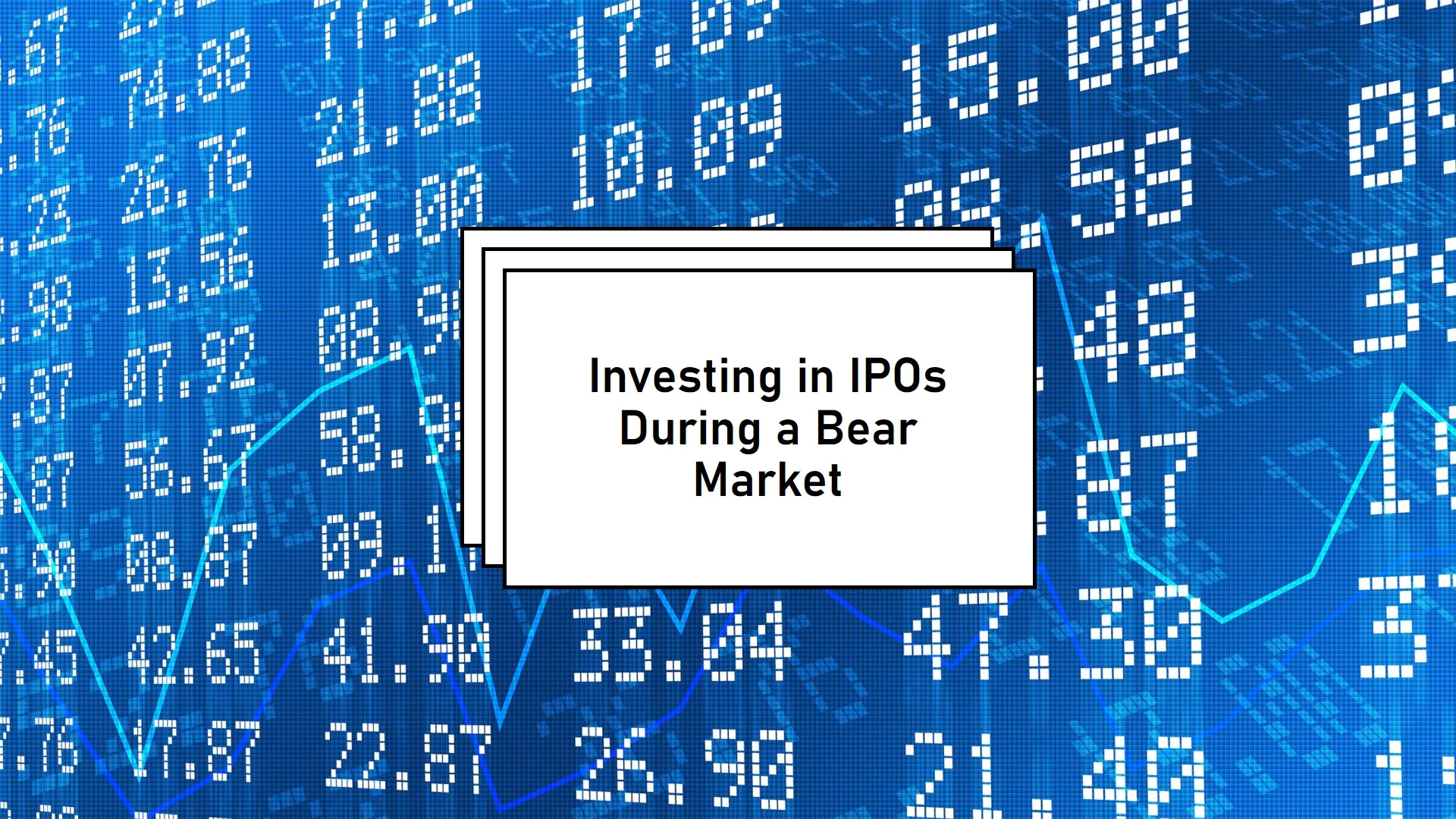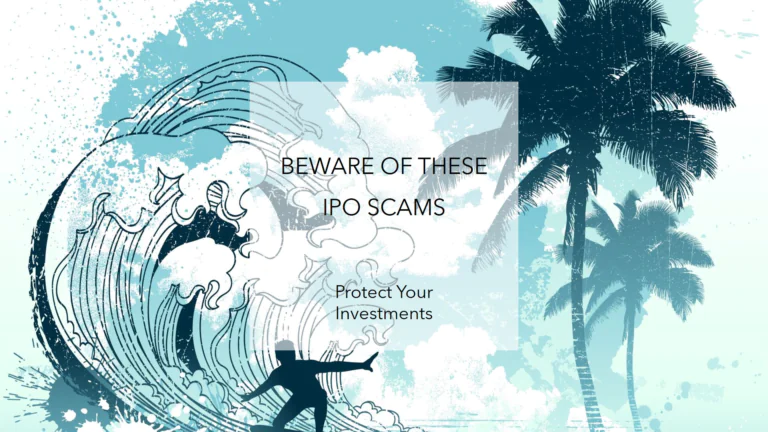Companies prefer to go for their IPOs as it is regarded as a key to success or attractive investment venture. IPOs whereby firms offer the public an opportunity to purchase their stakes for the first time are mostly occasioned by the need to issue out shares in exchange for capital. To the investors, it opens possibilities to be part of a company from a common stock ownership mode. But if the general trend is negative – people are talking about a bear market, meaning that stock prices are largely down, then it is not so easy to make a choice. In this article, we will review if starting an investment particularly those from IPOs in a bear market is a good financial decision.
Understanding IPOs and Bear Markets
It’s very useful to understand these terms first before discussing whether to buy IPOs during a bear market or not. It refers to the first sale of stocks to the public through a corporate trading platform by a company that desires to expand its capital base. One is a bear market that is defined by a steep and prolonged decline in stocks and accompanied by negativity and economic decline. Such situations cause a decline in investor’s risk appetite and this decreases market transactions.
Higher rankings are obtained when market conditions are bullish because the existence of IPOs benefits from the increased demand for new stocks. But bear markets present a unique challenge: IPOs are less predictable compared to other investment decisions since stock prices are declining and investors are getting more prudent.
IPO Investing Risks During a Bear Market
- Market Sentiment In a bear market, the investors are normally very cautious. This negative sentiment can lead to a low demand for new stocks, and this will translate to the prices of IPOs. Suppose a firm is well placed, possessing considerable share fundamentals, and robust and sound finance and investment ratios, the state of the overall market may push down its shares, at least in the short run. Taking the financial risks of new-generation companies could be deemed dangerous because people would opt for safer stocks in companies they are familiar with.
- Valuation The pressures companies may go public during bear markets while setting lower values than that of the bull market. This is because investors forecast little returns as well as their tendency to avoid high risks from unproven firms. It may be advantageous to get the share at a cheaper price this means that the company may have more challenges in making the necessary finances at the required levels. It also examined how lower valuations can limit future growth, and returns for the IPO investors.
- Affected Economy Bear markets are usually preceded or accompanied by other problems in an economy like slow economic growth, inflation, or increasing unemployment rate. These can affect how a company’s stock feels after it goes public through an IPO. That is, a firm that launches in the market during a downturn will not be able to achieve expected growth and consequently corporate earnings and stock market performance will be negatively influenced.
- Liquidity Issues Another thing that appears to be a major concern in a bear market is certainly liquidity. Owners generally have the desire to be able to sell some of their investments in the process if required. IPOs are likely to have low market liquidity in the event of a bear market and that’s where people may find themselves stuck. In case the value of the company’s shares drops after the flotation, there will be a high chance that investors will sell the stocks at a loss.
Advantages of Investing in IPOs When the Stock Market Is Down
On the positive side, there are a few advantages of participating in IPOs during a period of a bear market:
- Lower Entry Price As we noted earlier, companies are normally accorded a lower multiple in a bear market. It is for this reason that long-term investors can be said to be having an opportunity to buy the shares at a cheaper price. If the fundamentals of the company are good and if the company has a good and sound growth plan, then it makes a lot of sense to invest in an IPO particularly when markets are a bit bearish and get ready to reap big when the markets are bullish again.
- Sometimes, partnered with fundamentally sound organizations, their management decides to launch an IPO in a bear market. These firms may be trading at a low valuation because the market is failing to give these companies the correct value due to the negative attitude. To the more adventurous investors, this could be a way to analyze markets and invest in businesses that should do well once overall stability returns.
- Lower Amount of IPOs One of the characteristics of the bull markets is that it comes with a lot of speculation regarding Initial Public Offerings. It seems that firms can be overpriced, and Shareholders can invest in equities for mere speculation purposes. During a period of a bear market, such hype is low and thus, investors can realistically assume the actual potential of that firm instead of the chatter that dominates the market.
Things to Look at Before Investing in IPOs during a Bear Market
The decision to invest in IPOs during a bear market could have its advantages but before you make the decision, there are a few things you need to consider.
- Of all the factors that one needs to look at before investing in an IPO during a bear market, one of the most important is the company fundamentals. It means such things as business models, revenues, gross and net margins, and growth opportunities. High financials and an optimal business model are a safety net that allows getting through bear markets. Avoid companies that deal in emotional appeal because they are likely to lose direction when the economy turns bad and they are unable to spell out how they are going to make money.
- Management and Leadership The third management factor is leadership within the organization. During the bear market, the quality of the management team can become an important factor for investors. Managers who have worked before the onset of the recession remain relevant because they can guide other members of the company to weather the economic gyrations and seize points of growth. However, spend some time to research the expertise, and experience level of the management team before investing in an IPO.
- Industry Outlook some industries are more favorable during the outbreak of bear markets. For example, some industries such as the healthcare, staples, and utilities industries are resistant to bear markets. On the other hand, cyclical products like technology, luxury products, or discretionary services might be loss-making when it is difficult. In the evaluation of the IPO, the performance trends of the industry in and after the bear market should be regarded.
- Lock-up period IPOs tend to be accompanied by a lock-up period during which the insiders and early investors will be unable to sell their stock. This phase normally persists for 90 to 180 days after the IPO has been sold to the public. During a bear market, one could find out that more shares are sold in the market due to the pull of the lock-up period through achieving liquidity. Be also careful about the end of the lock-up period and the way it can influence the stock price.
- Long-Term Horizon The other principle that applies particularly in investment in IPOs during a bear market is the long-term investment horizon. Bear markets are temporary affairs and firms with good fundamentals and growth prospects will be able to come out every time the economy turns itself around. But if you have the patience it takes to withstand market fluctuations and if you invest in an IPO during a bear market you stand to benefit as the share prices will perform very well in the years to come. However, if you aim to make quick bucks, this might not be the desired approach; especially, when investors go for IPOs during a bear market.
Is It Worth the Risk?
As indicated earlier, investing in IPOs during a bear market is even riskier as well as having special prospects. If it is worth it, it is relative to an investor’s risk appetite, the investment plan employed, and the portfolio duration.
As for the conservative investors who prefer to avoid high risk the better strategy would be to wait till the market becomes more stable to invest in IPOs. On the other hand, targeting firms that have had tangible records of performance during the bear market could be a little safer, more predictable, and more reliable investment strategy.
For those investors who are more aggressive and have a long-term perspective, bear market IPOs may be a chance to invest in really good stocks at fairly low prices. If you are ok with short-term risks and you care enough to research the IPO firm first, then once the market conditions turn good, your stocks will gain.
Conclusion
Thus, it becomes prudent to ask whether IPOs should be effectively bought during a bear market. Of course, the answer to this depends on several parameters such as your preferred financial objectives under-investment, your tolerance to risks, and your time horizon for investment. Bear markets are never a great environment to launch IPOs, but they have long been seen as potentially extremely lucrative if one is willing to invest.
Ideally, IPO investing during a bear market can only be made successfully through research. The target should be established enterprises with solid bones, good management, and great prospects. Remember to pay attention to the state of the industry and the current market situation, and think about further plans.
Altogether, IPOs during a bear market can be both advantageous and disadvantageous. When approached properly they offer a lot of benefits, particularly if the scenario in the stock market turns bullish again one day.




